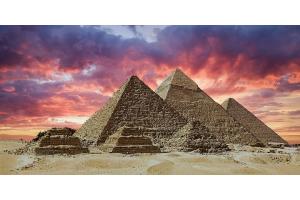As we put Easter in our rearview it seems the world continues to descend into utter chaos, senseless shootings, massive earthquakes, and severe weather are taking lives more and more.

Some 2000+ years later, the message of the cross isn’t what it was before Jesus conquered the curse from it. Traditionally the Old Testament tells us someone guilty of a crime worthy of death, they are to be executed and hung on a tree.
The body must be buried that same day, for anyone who is hung on a tree is cursed in the sight of God. And burying them will prevent the defilement of the land (Deuteronomy 21:22-24.) God has the authority to punish or reward people for their actions.
- Blessings
- Curses
The Torah warns God’s people if they don’t faithfully obey God, there are consequences for their disobedience; the curses could result in various forms of punishment: diseases, famine, or being conquered by one’s enemies top the list of God’s curses.
God’s people are commanded not to follow the ways of the world, because the land was cursed because of man’s disobedience in the garden. We must remember who is in control.
When the Messiah came, He defied Israel’s expectations, by humbling Himself to defeat the curse of death on the cross (Hosea 13:14, John 3:16.) Humility conquered death, not might!
Humility
Often the world views humility as a weakness, but nothing could be further from the truth. Jesus showed we can do more through humility than through might and pride.

Humility is defined as freedom from pride or arrogance. It is a state of being made humble or brought low. Humility isn’t the opposite of pride it is the total absence of it. The two cannot coexist.
It is better to humble ourselves than to be humbled by God. I learned the hard way 27 years ago when I had my accident, God will humble His people when they think they know better than Him or disobey Him.
The one-time prominent Pharisee Saul was struck down and humbled by God and it changed his life and the history of the church. The Apostle Paul should have remembered his Jewish teachings about humility.
ʿẶnāvâ
Judaism emphasizes humility amongst God’s people. The Nevi’im tells us that Satan became prideful and God humbled him by removing him from heaven (Isaiah 14:12-15.)
The Hebrew word in the Old Testament for humility is Ặnāvâ and it can also mean meekness, gentleness, or condescension. It is a process of being brought low from a haughty place.
The prophet Moses explained how Pharaoh became prideful and refused to listen to God and let Israel go. So God sent 10 plagues or curses upon Egypt to humble Pharaoh and bring about God’s will (Exodus 11:4-6.)
- Turning water into blood
- Frogs
- Lice or gnats
- Wild animals or flies
- Pestilence of livestock
- Boils
- thunderstorm of hail and fire
- Locusts
- Three days of darkness
- Death of the firstborn son

During the Passover God’s people humbled themselves, but Pharaoh and Egypt refused. When God sent His firstborn Son into the world, He and His parents fled to Egypt to escape Herod’s decree of the killing of two-year-old or younger Jewish sons (Matthew 2:13-23.)
The humble origins of Jesus shaped His earthly ministry. Jesus’ teachings contradicted Jewish beliefs about earthly greatness, it is better to serve than to be served (Matthew 20:28; 23:11.) He taught His followers to humble themselves so God could exalt them (Luke 18:14.)
Jesus knew this because He witnessed the arrogance of Satan and his fall from heaven (Luke 10:18.) Arrogance makes us think too highly of ourselves and pushes out humility.
Arrogance
When we become arrogant, we lose a healthy perspective of God and who we really are. Satan fell from heaven because he wanted to be God. Adam and Eve were kicked out of Eden because they disobeyed God and wanted to be like Him (Genesis 2:4-3:24.)\

The religious Pharisees tried to rely on their knowledge and positions, instead of God. However, they claimed to be experts and knew what the law said about arrogance (1 Samuel 2:13, Psalm 94:4, Proverbs 16:5.)
That is why Jesus confronted the Pharisees and warned His Disciples and followers to beware of the yeast of the Pharisees (Matthew 16:6; 23:1-40.)
- Hypocrisy
- Pride
- Deception
Arrogance puffs us up, while humility brings us low. The Apostle Paul understood how knowledge tricks us into thinking we are bigger and stronger than we really are (1 Corinthians 8:1.)
If we don’t humble ourselves, God will do it for us. As I write this citizen Trump’s media company’s stock is crashing. Yet, he calls it fake news and continues lying because he doesn’t understand what it means to be ʿănāvâ!













